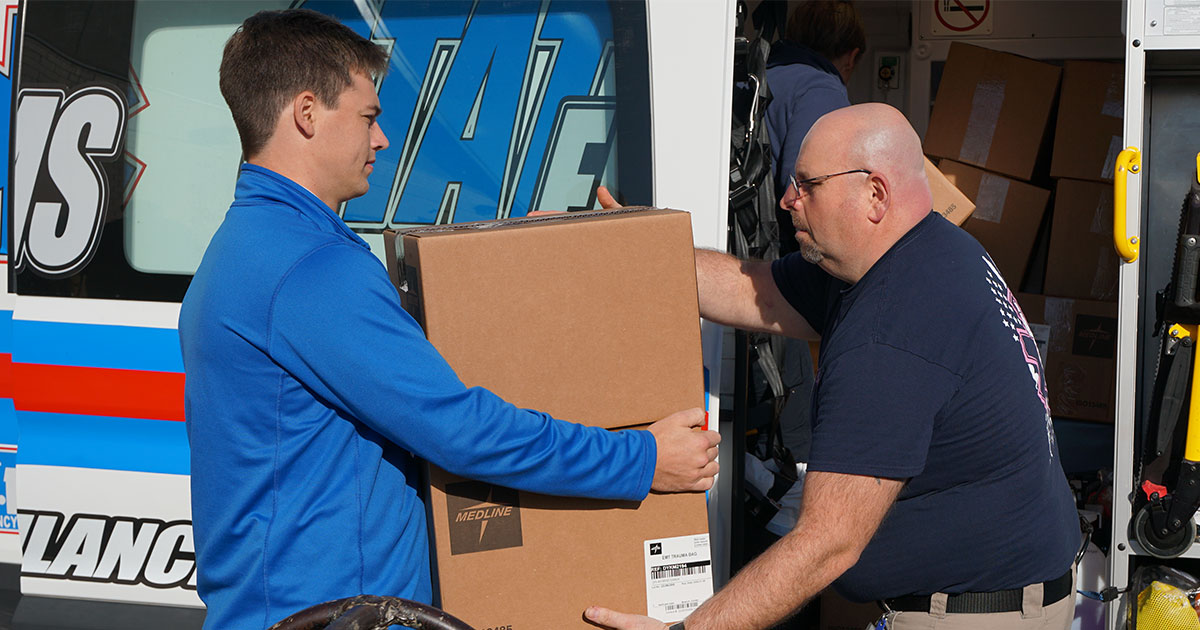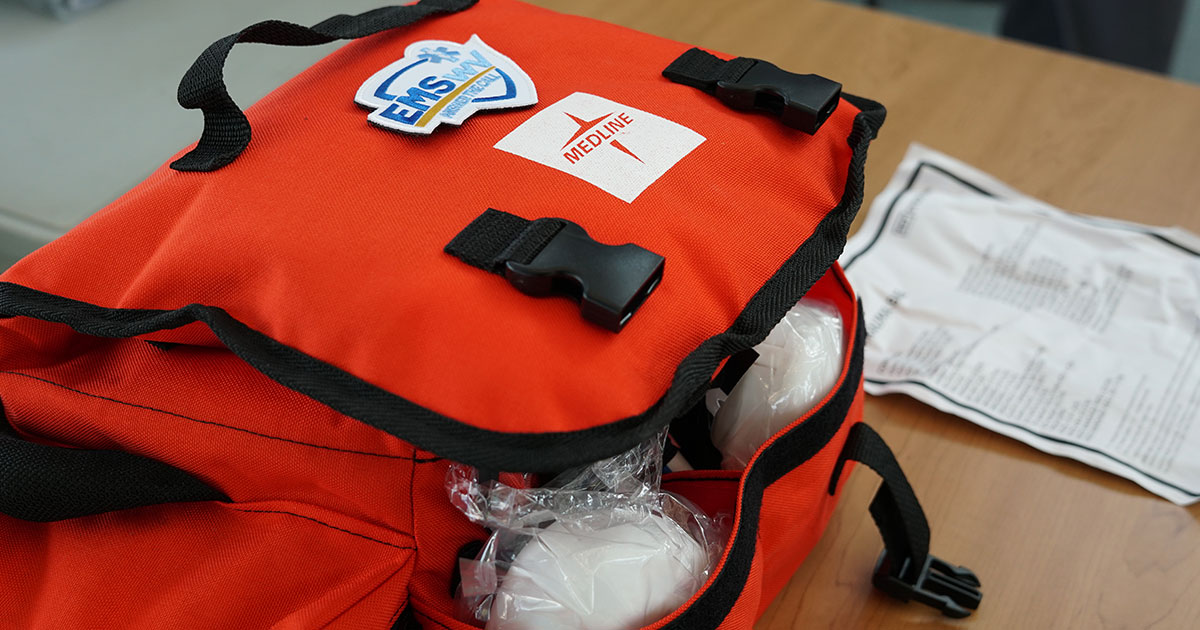West Virginia equips EMTs and paramedics with essential medical supplies

By Medline Newsroom Staff | December 7, 2022
Clinton Burley has spent more than 35 years working in the healthcare field. He is currently the CEO of West Virginia-based HealthNet Aeromedical Services, a nonprofit critical care aeromedical transport system owned by the state’s three academic medical centers, WVU Medicine, Charleston Area Medical Center and Cabell Huntington Hospital. Over the last three decades, the program has been a staple care organization for residents in the Appalachian Mountains.
“The time it takes to reach a small community hospital in a neighboring county can be difficult with mountainous roads,” said Burley. “Air medical helicopters, and the critical care trained flight teams serving on them, give critical care patients a fighting chance to go home to their families.”
Two-thirds
of West Virginia’s total population live in towns with fewer than 2,500 inhabitants
Many associate air medical with trauma events like car accidents, but that is only a portion of the calls HealthNet Aeromedical Services receives. Other critical care needs include moms experiencing pre-term labor, residents who have had strokes or cardiac events, or patients experiencing negative effects from a recent surgery. West Virginia ranks among the most rural states in the country, with nearly two-thirds of its total population living in towns with fewer than 2,500 inhabitants. Burley shared there are only two Level 1 trauma centers in the state, stressing the importance of aeromedical organizations like HealthNet.
Strengthening West Virginia’s EMS workforce
HealthNet Aeromedical Services has 300 individuals on staff, contributing to an EMS workforce of 4,000 people in West Virginia. Due to continued turnover though, the organization has experienced challenges with recruiting staff, like many other healthcare providers across the country. According to the American Ambulance Association, annual turnover among paramedics and EMTs has ranged from 20% to 30%.
To bolster West Virginia’s EMS workforce, Governor Jim Justice launched a program called Answer the Call, aimed at better equipping EMTs and paramedics with tools to provide high quality care. One of the initiatives was to source 5,500 bags with essential supplies for every EMS worker in the state.

Medline sourced 5,500 bags with 41 essential supplies for West Virginia EMS workers
“It was important to Governor Justice to recognize our entire EMS workforce, and through brainstorming ideas, we thought emergency bags could really help responders who are first on the scene.,” said Dr. Cynthia Persily, vice chancellor for health sciences, Community and Technical College System of West Virginia. “Volunteer EMTs can even keep the bags in their car and use them to help provide care while waiting for an ambulance to arrive,”
Last year, Governor Justice approached Persily and her team to help take ownership of the initiative and expand the EMS workforce in the state.
As the largest privately-held manufacturer and distributor of medical supplies, Medline began working with HealthNet Aeromedical Services in June to source the customized bags containing 41 different items, including gauze, bandages, gloves, EPR masks, different types of nasal and mouth airways, chest seal and tourniquets.
Leveraging Medline resources
“We are honored to have had the opportunity to participate in this project,” said Brantley Johnson, Medline EMS account manager, based out of West Virginia. “We are always looking at new ways to rally around the EMS sector and implement new initiatives that create an empowered workforce. We could not have done this without the support of our supply partners who worked so hard to source all the items needed to fill the kits.”
“We expect the bags to be a game changer for the EMS sector in West Virginia. As operational costs continue to increase, this will make it easier to care for patients.”

Clinton Burley
CEO, HealthNet Aeromedical Services
Brantley, who has helped lead this project, explained that because the packs were custom built, Medline worked with a number of supply vendors to source the individual supplies. The company then leveraged one of its manufacturing facilities, which specializes in kitting, to pack the bags. Medline opened the first production run in October and produced more than 1,100 EMS bags in just a week and a half. In total, hundreds of Medline team members from EMS sales, product sourcing teams, individuals on the production floor and MedTrans, Medline’s private truck fleet, have played a role in this timely project.
“We expect the bags to be a game changer for the EMS sector in West Virginia,” said Burley. “As operational costs continue to increase, this will make it easier to care for patients.”
Over the next few months, the bags will be distributed across the state. The first distribution on November 29th already handed out 800-plus bags to EMTs and paramedics in southern West Virginia.
Learn more about Medline’s EMS offerings.
Medline Newsroom Staff
Medline Newsroom Staff
Medline's newsroom staff researches and reports on the latest news and trends in healthcare.
